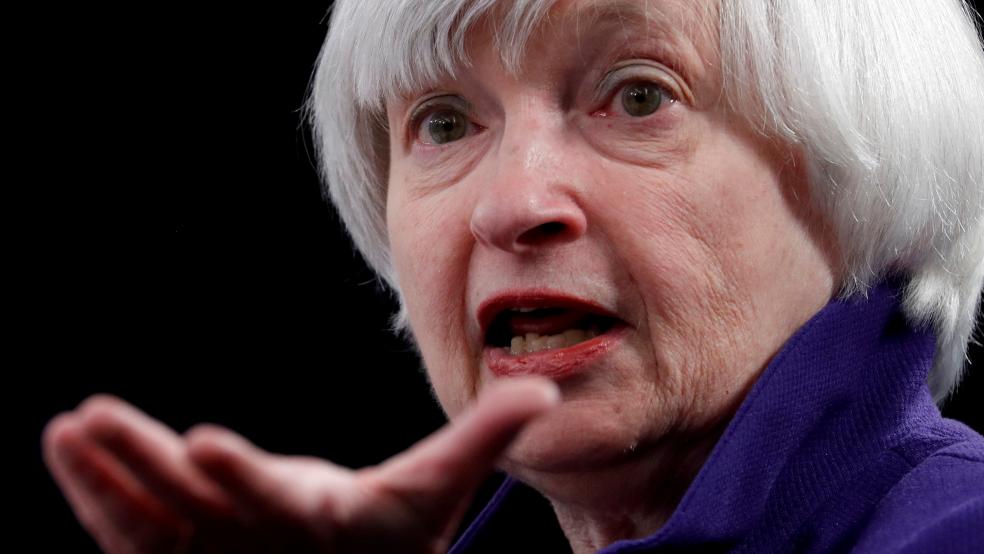Treasury Secretary Janet Yellen on Tuesday called on lawmakers to raise the debt ceiling as quickly as possible, while warning that there would be “widespread suffering” if Congress fails to act.
“Time is running out,” Yellen said Tuesday at a meeting of the Independent Community Bankers of America in Washington. “The U.S. economy hangs in the balance. The livelihoods of millions of Americans do too. There is no time to waste.”
Yellen said costs are already rising due to the showdown over raising the debt limit, with investors shying away from short-term U.S. debt that could be affected by a default, pushing interest rates higher. Consumer confidence is falling, businesses are wasting time hedging risks of a possible default, and the U.S. risks a downgrade to its credit as the X-date when the Treasury runs out of cash looms draws nearer.
Yellen cited an analysis by the White House Council of Economic Advisers of what would happen in the event of a default. “In its study, more than 7 million Americans lose their jobs. The unemployment rate surges to over 8 percent. And $10 trillion in household wealth is wiped out,” she said. “If that sounds catastrophic – that’s because it is.”
Reminding her audience that the debt ceiling has been raised about 80 times since 1960, Yellen asked Congress to prevent a crisis simply by raising or suspending the limit once again.
CEOs chime in: More than 100 business leaders sent an open letter Tuesday to President Biden and top Congressional leaders urging them to address the debt limit.
The signatories, who include James P. Gorman of Morgan Stanley, David M. Solomon of Goldman Sachs and Robin Hayes of JetBlue, said failing to act in time would produce “potentially disastrous consequences.”
“Although the American economy is generally strong, high inflation has created stresses in our financial system, including several recent bank failures,” they wrote, per CNN. “Much worse will occur if the nation defaults on our debt obligations, which would weaken our position in the world financial system.”
The CEOs noted that the U.S. received a credit downgrade as a result of the near default in 2011. “The stock market still lost 17% of its value for more than a year,” they wrote. “Moody’s reported that the heightened uncertainty from this crisis resulted in 1.2 million fewer jobs, a 0.7 percentage point higher unemployment rate, and a $180 billion smaller economy than it otherwise would have — dire impacts that occurred without an actual default.”



